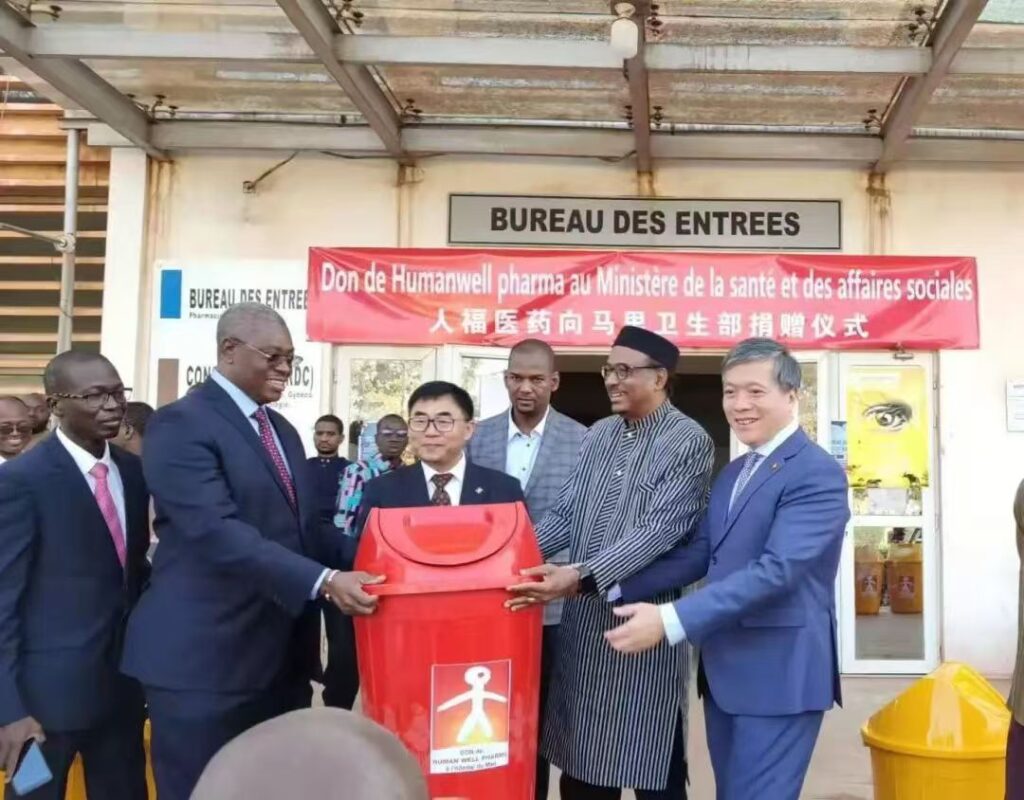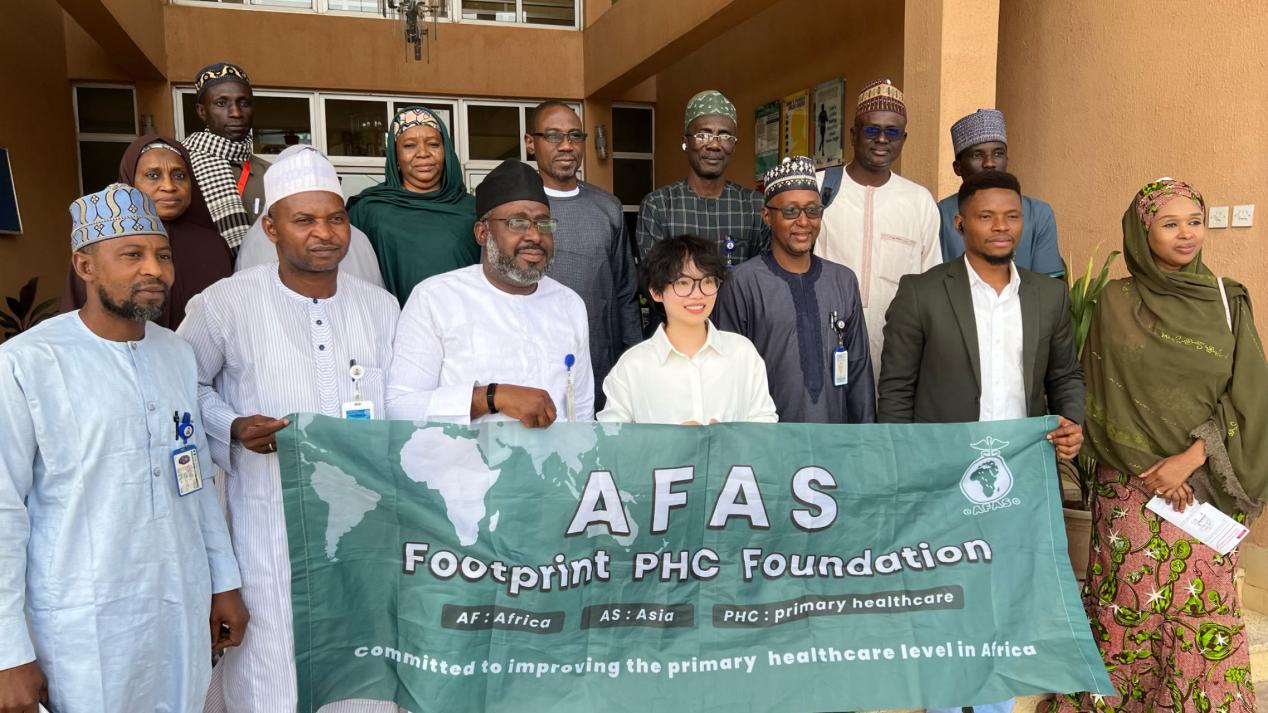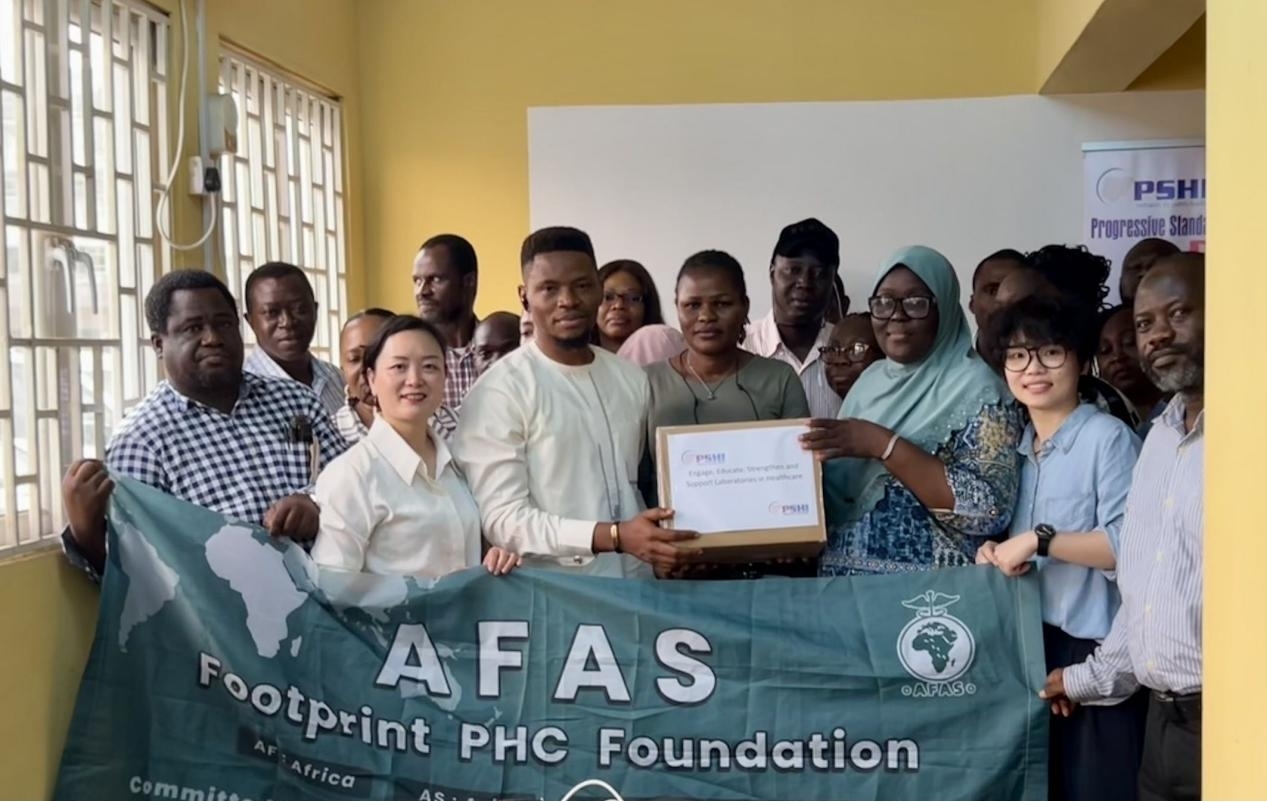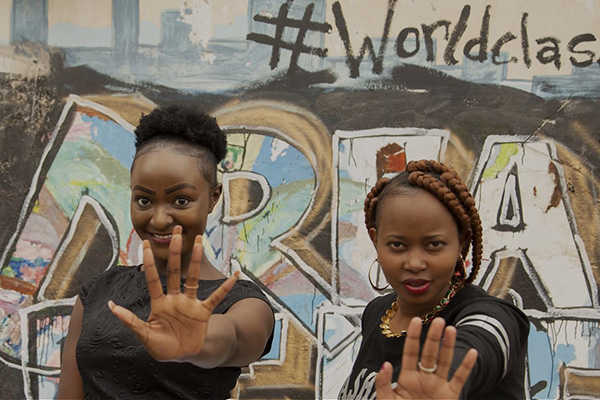Qiu Yan Feng: Based on your observations, what are the primary public health challenges currently faced by Africa? What urgent needs do local communities and medical institutions have in terms of medicine and medical resources?
——————————————————————————-
Wen Sheng Li: Africa has long faced numerous public health challenges and an urgent need for medicines and medical resources. Due to the underdeveloped healthcare system, the continent often relies on imports of medical equipment and drugs from Western countries such as Europe. However, these imported goods are typically expensive. Among those dedicated to helping Africa is Wen Sheng Li, CEO of Humanwell Pharmaceutical Group Africa, who, together with his team, is striving to transform the African healthcare system.
Mr. Li shared some of the challenges of working in the medical field in Africa, starting with identifying the most urgently needed medicines for local people and then establishing pharmaceutical factories. For example, essential medical products like glucose and saline for IV infusions are in high demand in West Africa. Humanwell’s first factory in Africa, “Large Volume Parenterals,” specializes in producing these products, ensuring that local communities no longer have to worry about shortages.
However, transportation remains a significant challenge. Even in African countries with relatively better infrastructure, the “last-mile” delivery issue persists. In China, e-commerce goods can reach their destination within days, but in Africa, delivery is fraught with difficulties, particularly in rural or remote areas with poor transportation networks. Moreover, the high cost of transporting medicines from abroad exacerbates the problem. To address this, Mr. Li has focused on establishing factories locally to produce medicines, thereby improving accessibility and reducing reliance on overseas shipments.
Technical capacity is another challenge. Development levels vary widely across African countries, with even relatively developed nations facing issues like poor rural and remote-area transportation. Furthermore, public health challenges like cold chain logistics are significant, especially for vaccines that require temperature-controlled storage and transportation. The lack of cold chain infrastructure represents a considerable obstacle.
Education, however, is the greatest challenge. From government officials to professionals, there is a general lack of awareness about public health issues, stemming largely from inadequate education. This weakness in education impacts everything from public health and disease treatment to overall socio-economic development. Local educational resources are often scarce, and the general public has limited understanding of public health concepts or advanced medical techniques. Even medical professionals, including those with doctoral degrees, often have limited knowledge.
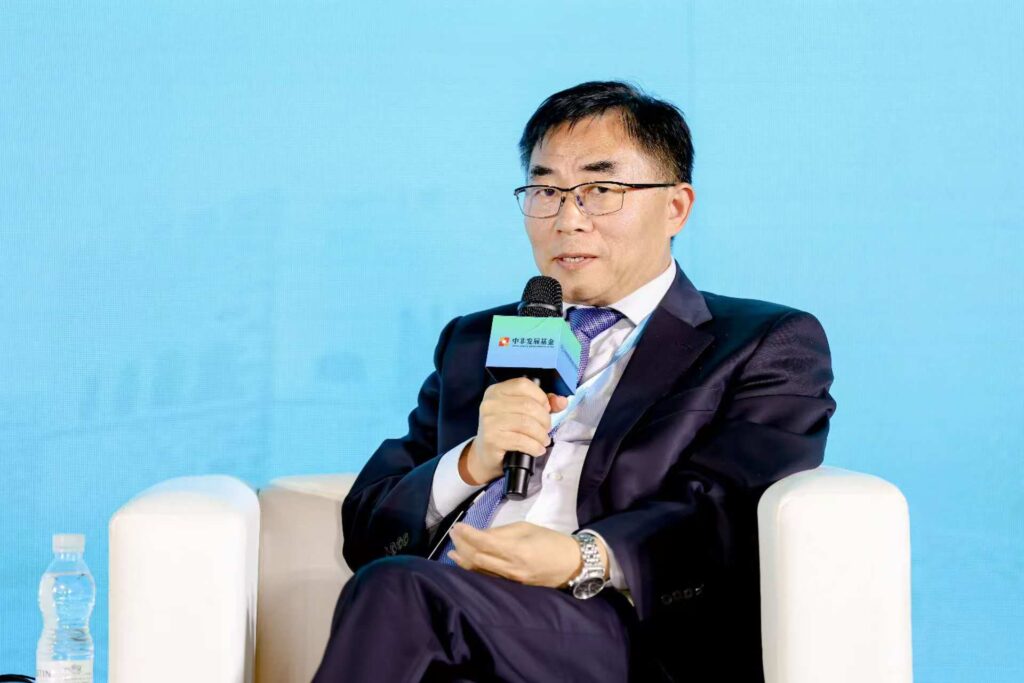
Qiu Yan Feng: How has Humanwell’s presence improved access to medical resources in West and East Africa? What medicines or products have been particularly important in improving public health?
——————————————————————————-
Wen Sheng Li: Given the challenges of importing medicines, we’ve made significant changes. On one hand, we’ve localized pharmaceutical production by establishing factories in Africa. This shortens the supply chain and improves accessibility. On the other hand, we carefully determine the types of medicines to produce, focusing on the most urgent local needs. While high-end medicines are also needed, meeting the basic needs of the majority takes priority. For instance, our first factory in West Africa, “Large Volume Parenterals,” produces essential products like glucose and saline. These seemingly simple products require high production precision and technology. By localizing production, we’ve solved problems related to medicine shortages and the difficulties of importing medicines from abroad.
Qiu Yan Feng: In Africa, the health of children and pregnant women is a key concern. Does Humanwell have specific products or initiatives aimed at improving their health? What additional support could be provided for these groups?
——————————————————————————-
Wen Sheng Li: Our East African factory collaborates with Humanwell Egypt to produce medicines specifically for women and children. Organizations such as WHO’s Women and Children’s Health Program and the Red Cross have inspected our facilities, evaluating our equipment, production processes, and product range. We produce medicines tailored for women and children, including different formulations, varieties, and dosages. For example, children’s medicines are made in smaller doses and with improved flavors, such as orange-flavored syrup, to make them more palatable for children. These advancements cater to the specific needs of women and children, but there’s still room for improvement. We aim to develop more products, such as iron supplements for women, to fill the gaps in accessible healthcare. Although such products serve smaller populations, we remain committed to creating medicines that are suitable for women and children, including formulations for infants who struggle with traditional medicines.
Qiu Yan Feng: What are the main difficulties in controlling infectious diseases in Africa? How has Humanwell contributed to addressing diseases like malaria and improving public health?
——————————————————————————-
Wen Sheng Li: Education is the biggest hurdle in controlling infectious diseases. The lack of government resources and limited management capabilities lead to underdeveloped public health infrastructure, making it easy for infectious diseases to spread widely. If awareness of hygiene and prevention could be instilled in schools and among children, the situation might improve. Currently, however, educational efforts in African schools are insufficient. Governments, society, schools, businesses, and nonprofit organizations must work together to enhance public awareness of disease prevention.
Additionally, ensuring access to medicines is critical once an outbreak occurs. Controlling transmission pathways, providing vaccines, medicines, and protective measures are all essential. During the COVID-19 pandemic, Humanwell, despite primarily focusing on pharmaceuticals, sourced protective supplies worth over 5 million RMB from China, including masks, testing kits, protective suits, goggles, and gloves, and airlifted them to Africa. These supplies were distributed in countries like Ethiopia, Mali, Niger, Côte d’Ivoire, and Burkina Faso. Although our resources were limited, we did our best. Local ambassadors and health officials attended donation ceremonies, and the supplies were quickly distributed. Ensuring the health of our local employees also meant safeguarding our production capabilities, reinforcing the importance of a shared destiny for global health.

Qiu Yan Feng: What long-term changes do you hope Humanwell’s efforts will bring to Africa’s healthcare system? What are your expectations or suggestions for Africa’s self-development in healthcare?
——————————————————————————-
Wen Sheng Li: I believe Humanwell should continue expanding its presence across Africa. Currently, we have factories in East and West Africa, but we aim to establish facilities in Central, Southern, and North Africa as well. While we currently produce basic products like large-volume parenterals and tablets, we plan to invest more in research and development to extend our product lines to include antibiotics, anti-HIV drugs, and oncology treatments. This would enable us to meet the urgent needs of more African countries and regions.
We also aim to establish commercial offices in individual countries to serve as distribution hubs. Factories can supply surrounding nations, but commercial offices will ensure products reach medical institutions and consumers, increasing accessibility and creating a broader sales network.
Another key initiative is establishing a research institute. We plan to recruit talented young professionals from China and Africa, especially African university students interested in healthcare, to join our R&D team. This institute will focus on identifying and developing medicines most needed in Africa. By involving local teams, we can educate employees, promote medical knowledge, and gather valuable insights. Additionally, introducing Chinese pharmaceutical standards and practices to Africa will enhance understanding and trust in Chinese expertise, enabling smoother operations and effective competition with Western companies.
Ultimately, Humanwell’s comprehensive approach includes expanding production, strengthening distribution, promoting Chinese pharmaceutical standards, and collaborating with global organizations like the Gates Foundation and the Clinton Development Initiative to amplify our impact. This is our vision for the future.

Qiu Yan Feng: Are there any moments during these efforts that have made you particularly proud or that you find unforgettable?
——————————————————————————-
Wen Sheng Li: In 2018, I received several honors in Mali, which I regard as not just personal achievements but as recognition for all Chinese people and the Humanwell team. For example, I was awarded the Knight’s Medal by the president, a prestigious honor. I was also the first Chinese recipient of the Officer’s Medal, a high-ranking distinction. These honors reflect the transformative role Humanwell has played in enabling local medicine production, which proved invaluable during the pandemic.
However, what made me most proud were the words of local people. They remarked that while Europeans had ruled for a long time and could have easily built factories, they didn’t. But when the Chinese arrived, not only did we produce medicines, but we also priced them far lower than European imports. They saw our sincerity in helping them and noted that while Europeans viewed them as perpetually impoverished, we recognized their potential. Hearing this made me immensely proud because it showed that we weren’t just operating a business but actively integrating into and contributing to the local community. As a Chinese citizen, I felt an overwhelming sense of pride and fulfillment.
